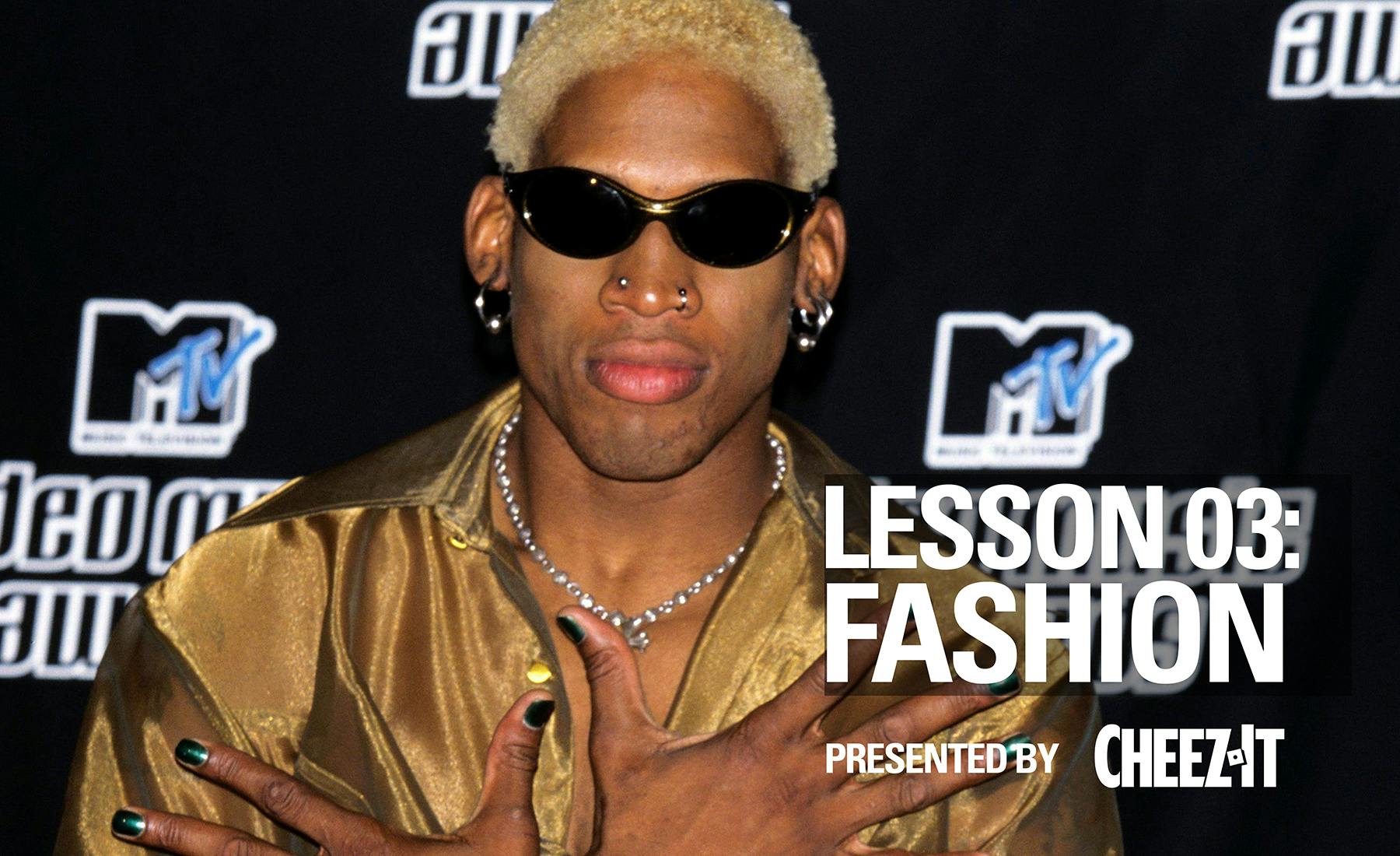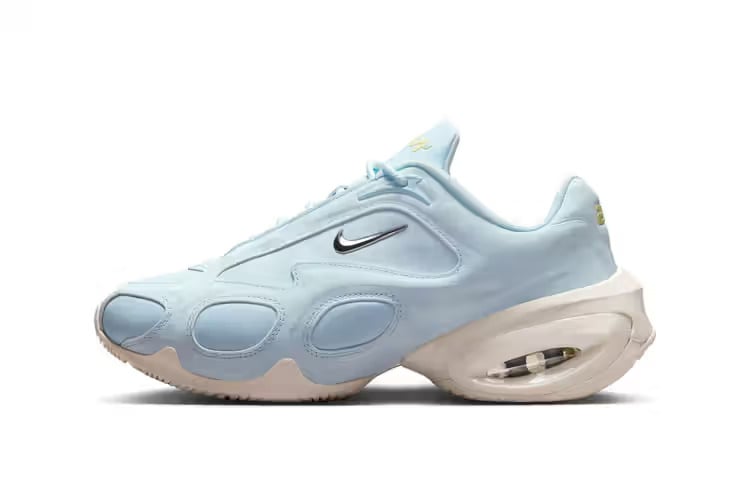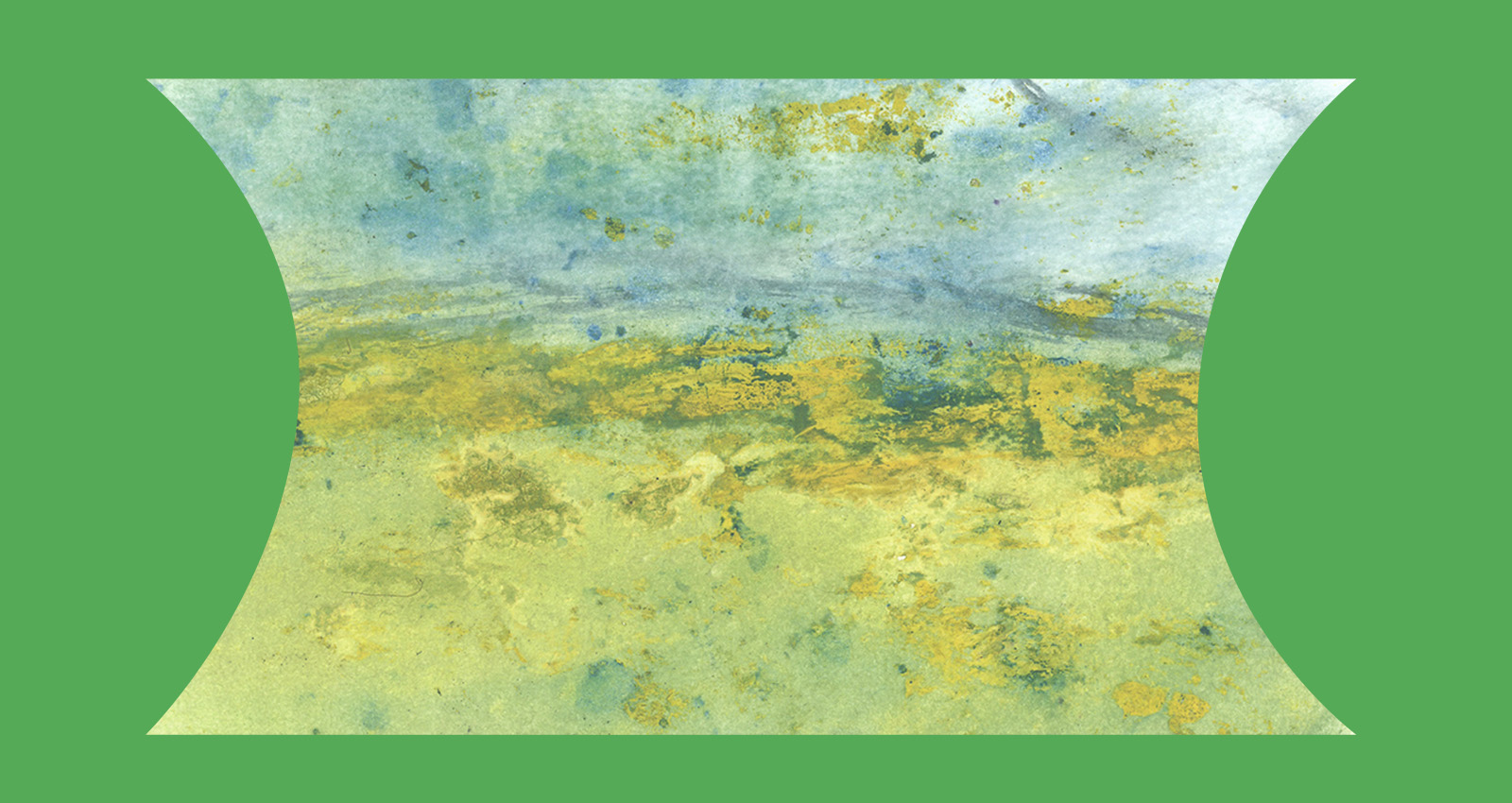
Welcome to The Tape Label Report, where we introduce you to five cassette-focused labels you should know about, and highlight key releases from each.


“Deep listening for the new, now age.” This modest text on the Aural Canyon Bandcamp page sums up perfectly what the Texas-based ambient label is all about. “We are thrown so many things, so many distractions” in everyday life, says label founder Matthew Erik Hanner. Aural Canyon’s output is an invitation for the listener to take a beat and reorient their attention, be that through a 48-minute tone poem about nature or even a psychedelic synth odyssey inspired by ‘90s beach fashion. The aim, explains Hanner, is to foster a more deliberate listening experience, what he describes as a “connected, response to listening” rather than merely “hearing someone’s art.”
The label was founded in 2017; its second release was a fundraiser for Planned Parenthood around the time Trump slashed funding to the organization. Ambient and LA beats star Matthewdavid opened the compilation, with the likes of more eaze and Andrew Weathers also guesting. Since then, Astral Canyon has welcomed artists of diverse musical output, from the meditative guitar picking of Mat Eric Hart to the pastoral kosmische of TwoPine. Though the label’s name suggests a blissed-out, hippie sensibility evocative of the home of the 1970s folk music, Laurel Canyon, Hanner asserts there is no definitive sound or aesthetic. “The community is the ethos,” he says. “The artists are the aesthetic.”
Aural Canyon has started releasing vinyl, including ambient jazz trio Natural Flavors!’s second album, Now Zoning, yet its predominant physical output remains tape. Hanner’s love affair with the format goes back to his childhood. “The crackle, the hiss, the air that comes out—it’s just beautiful,” he says. As a youngster, Hanner even learned to repair his beloved cassettes. There is some music, he says, that simply sounds moving from reel to reel compared to on vinyl or via streaming. “When I find that magic,” he says, “I just get to work.”
Collaborators Lake Mary, i.e. Chaz Prymek, and pinyonpine, aka Tj Nelson, recorded it’s okay, you can open your eyes now live at a studio in Salt Lake City one December evening. The result is nearly 40 minutes of wistful, wispy ambient that is so quiet and delicately performed that you almost have no choice but to listen to it deeply, Pauline Oliveros style. The elements are familiar—gurgling electronics, gauzy tones, soft pads, and lap steel played by Prymek—yet the album sounds undeniably fresh, summoning not the cold of winter but warmth of spring, catching and carrying the listener on the gentlest of zephyrs.
– Lewis Gordon
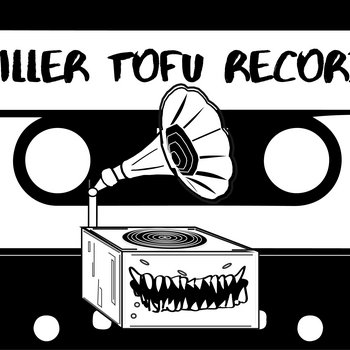

“I just like creating something and helping bands. That’s the real crux of it,” explains Lance LaBar when asked what he’s gotten out of running Bethlehem, Pennsylvania-based punk and DIY cassette label Killer Tofu for nearly a decade. “When I go to a show or hear a great song online, the next question is, do I want a physical copy of this music? And usually, I do. So, okay then, what can I do to help make that happen?”
Labar started Killer Tofu in 2015, mostly as a way to release his own band’s first album, McGarnagle’s Phantom Vibrations. The Lehigh Valley math rock band had done everything themselves, from writing and recording the songs to creating the album art, so why not release it themselves as well? Since then, Killer Tofu has put out 48 projects, starting with tapes, but branching into 7-inches, CDs, and vinyl.
Still, cassettes hold a special place in LaBar’s affections. “Every tape I’ve done is 100% by me. I do all the dubbing. I do all the layouts. I do all the cutting and trimming. I do all the assembly. I do all the stickering. It’s fun,” he says. “Plus, I listened to cassettes all the time as a kid. I’ve always listened to cassettes and loved cassettes.”
“I’ve been doing this for 10 years. I’ve seen the interest in my label increase and decrease, but I still love doing it and I hope that comes across with all my releases and everything I do,” says LaBar.
 . 00:10 / 00:58
. 00:10 / 00:58 LaBar’s first love was math rock, so he’s always on the lookout for groups who make angular, cerebral music with intricate time signatures. He found the Athens, Georgia band Hyper Olympic on a Reddit board, struck up a relationship, and released their Life Is But a Dream Team in 2020. Split release Critical Hits matches two tracks from Hyper Olympic with two from like-minded Florida band Makoto. The Athens duo’s sinuous, complicated interplay gets a showcase in bright, meandering “Carmelo,” where liquid eddies of guitar pyrotechnics spill over frenetic drumming, and metallic aggression bursts out of jazz-fusion-esque reveries. Makoto’s tunes are likewise bristling with complex aggressions; their “Hello” deftly navigates sharp, geometrical turns and shreddy intervals.
– Jennifer Kelly


Saxophonist Colin Webster came up through the London free improv scene in the 2000s, playing clubs like Red Rose, Flim Flam, and Bonnington Café. Since 2012, his Raw Tonk Records has documented the cutting-edge jazz scene that he has encountered there and abroad, focusing on his own output as well as the growing community around him.
Raw Tonk specializes in bruising, propulsive free improv in duos, trios, and quartets; work by the Kodian Trio or Ripsaw Catfish is exemplary. But the label goes beyond this remit for more experimental work as well. Webster’s own vs Amp sees him playing extended techniques on saxophone with two Fender amps, while Dirk Serries’s Etched Above the Bow Grip is an exploratory electric guitar workout dedicated to Derek Bailey. Saxoctopus, meanwhile, goes the other direction with a full octet of alto, tenor, and baritone saxes.
A close look at the label’s discography reveals repeat appearances from a cast of prolific players, including drummers Mark Holub and Andrew Lisle and double bassists John Edwards and Otto Willberg. However, Webster doesn’t see Raw Tonk as an archive of a specific scene. “I think it’s more nebulous than that,” he says. Rather than defining the label’s output in terms of social circles or geography, he thinks of it as participating in an aesthetic evolution that stretches back across decades. “I see it more as if this music is a continuum, and we just pull out some snapshots of the work that’s going on.”
An important part of this continuum has been documented via cassette. He cites several free improv albums that first saw light as tapes: Han Bennink and Misha Mengelberg’s Coincidents, Derek Bailey’s Concert in Milwaukee, and much of Simon H. Fell’s output on his Bruce’s Fingers label. “Tapes have a great visual aesthetic, and a really specific audio quality that suits certain types of recordings,” Webster says. “There’s a long history of releasing improvised music on tape, so it’s nice to continue that in a small way.”
Sowieso is a live recording of Webster and Holub on a European tour, playing here with Sofia Salvo and Jan Roder for the first time at the Sowieso club in Berlin. “There’s such an energy from the performance, and such a heavy dynamic the whole way through both sets, and I think tape is a great format for capturing this,” Webster says. Press play and you immediately hear what he means: Both sets are roller coasters that rush through frantic bursts of activity, slow down through careful, ruminative sections, and then rise again in blazing crescendos, cheered on throughout by the appreciative audience.
– Matthew Blackwell


New York City-based Soap Library bills itself as a “holistic tape label,” but “holistic” is an understatement. Founded by Kerry Santullo in 2015, Soap Library doesn’t just put out runs of exquisitely designed tapes, it conceives of each release as its own little pocket universe that sits comfortably in your jacket pocket.
Santullo dreamt up the label in 2015 while working at Mexican Summer, a Brooklyn-based hive of cutting-edge record labels and indie entrepreneurship. Soap Library’s conceptual concerns and wide-ranging musical palette was informed by the labels she was working alongside, such as Matt Werth’s RVNG Intl. and Daniel Lopatin’s Software Recording Co. Santullo says, “I love DIY grittiness, but I wanted to take a softer, sillier, sweeter approach. Experimental music takes itself too seriously sometimes, so it was important to incorporate humor and a soft edge into the label’s identity.”
Soap Library takes the methodology of cassette-as-art-object one step further by presenting an actual objet d’art to accompany the tape itself. These accessories have included a vial of mushrooms (non-psychedelic), silicon shard, and bath salts (non-stimulant). There are also mundane objects such as a clothing patch, dried rosebuds, a wooden stamp block, and blue vervain herbs for casting spells or making tea. Gryphon Rue’s 2024 tape Playing The Beetles is packaged with a “candy cricket lollipop;” other recent releases have come with useful items like a matchbook, a keychain flashlight or a cassette-sized notebook. “I give artists creative freedom when selecting an object,” Santullo says, “with the only caveat being that it must fit into a 4×6” mailing envelope. I held my breath when we mailed out Ian Drennan’s Swine, which came with a tiny vial of argon gas (hence why we only made 20 copies). Fortunately, those packages breezed through the postal system without a hitch. In many ways, I consider the US postal service to be my greatest collaborator.”
Don’t let the extra-musical hijinks overshadow the music contained in Soap Library’s stacks. From DIY takes on American minimalism (Jeff Tobias), party-banging remix workouts (Kevin Kenkel), bucolic journeys via modular synth (Daniel Klag), and ambitious, multidisciplinary mini-epics (Eve Essex), Soap Library covers a lot of ground. Forthcoming Soap Library releases include tapes from Crystal Peñalosa, Pussypaws Puppetry, Kevin Kenkel, Molto Ohm, Ralph Hill, and Jonny Campolo. “One thing I love about cassettes is the more you play them, the more they disintegrate—and that’s a good thing! Soap has a similar function…it’s meant to bubble and froth; rinse and repeat,” Santullo says. “I also love that tapes and soap are around the same size, and both fit neatly in your palm and in your pocket.”


In addition to the aforementioned gas-accompanied tape, New York composer Ian Drennan has two other releases on Soap Library: the digital-only, mournful, ghostly, piano-centered Passchendaele and 2020’s Me My Imp. Inspired by Beckett but ending up closer to Artaud, Me My Imp is a tour de force of sound design and dramatic tension. Tracks like “Frame” and “Blue Bird” have the same Industrial Revolution/digital workstation clash of Matmos’ The Civil War, while “Ixion” is like an audiobook version of a fantasy novel as seen through the prism of Nurse With Wound. “Celtic Traditional” renders the pastoral threatening but also kind of hilarious, as the fabric between terror and slapstick is shredded right in front of you. Me My Imp is accompanied by a “military grade magnesium fire starter tool” which hints at both danger and resourcefulness. Soap Library, the Prometheus of tape labels.
– Erick Bradshaw
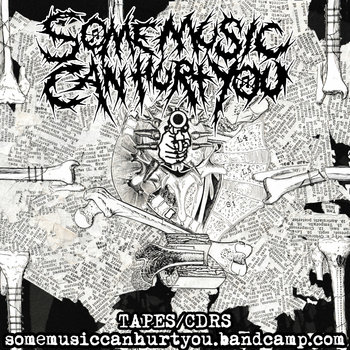

Based out of Winnipeg, Canada, Some Music Can Hurt You primarily releases recordings by explicitly left-leaning artists working within the fields of noise, grind, gore grind, and their chaotic offspring: Gore Noise, a genre where track titles are festooned with grisly imagery exaggerated to the point of hilarity. A brief glance through the label’s output reveals such delights as “Unrecogniszble Mess of Flesh and Guts,” “Yeti’s Putrid Bong Water Stench,” and the astonishingly titled Barbed Wire Cock Floss from Teratoma. Album artwork consisting of collages of viscera and autopsy imagery comprehensively continues the theme.
In a 2022 interview with Witchpolice Radio, Lilliana, the brains behind SMCHY, explained their preference for tapes due to space-saving and budget-friendly factors. That and “they’re really tough. I had a friend buy a tape once and, on the way home, it fell out of their pocket and got run over by a car and it still worked.” The label adds its own grotty sheen to recycled tapes by spray painting the casing and providing J-cards that have been sourced from diving in dumpsters. In the same interview Lilliana showed their commitment to the cause by saying, “If I die in a horrific accident, I will be disappointed in the afterlife if no one used it as an album cover.”
Whilst not necessarily representative of the label’s entire oeuvre (the lack of skin-startling noise and bludgeoning blast beats almost sets you up for a fall) the 10 minutes of deeply unsettling gear that makes up 809 Setter St, Winnipeg, M.B., R2Y 2H8 forms a neat stepping stone from the unknown into SMCHY’s world.
Through cycles of distorted arpeggiators, thick buzzing oscillators, and anguished howls reminiscent of the stamped hamster vocals of Chip King from The Body, shards of feedback emerge to tear through a sample of religious proclamations. As the ‘Moroni’ in the artist’s name refers to a Mormon angel and the address given in the title is for a local Mormon temple, it’s quite plain to see the alignment between Severed Head of Moroni’s stance against organized religion and the political persuasions at the heart of Some Music Can Hurt You’s output.











